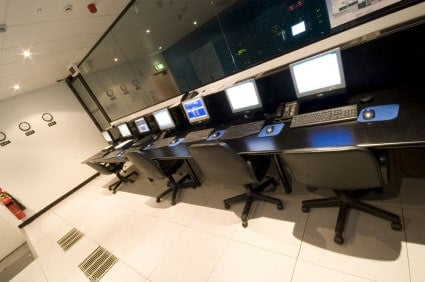Medical alert monitoring systems come in four basic forms. The first, and most popular, are the two-way voice systems. They are the emergency alert systems that typically come to mind when considering a medical alert system – think of Life Alert systems and their catchy tagline “Help I’ve Fallen and Can’t Get Up.”
The second are simple medical alert buttons or alert pendants that when pressed, send a medical alarm to a central monitoring station. They do not have two-way voice and are typically found on security systems.
The third is a non-monitored system that can dial a certain amount of telephone numbers (usually 3 or 4) and announce a pre-recorded message. Since these systems do not send a signal to a central monitoring station, we call them “non-monitored.” Instead, they will dial your home, your loved one’s neighbor, or your work, looking for an answer. If it gets one, it will make its announcement. It may say something like: “There’s a medical emergency at 1234 Anywhere Street, please come immediately!”
The fourth dials 911 directly so it’s partially monitored but the 911 dispatcher on the other end does not know anything about you. You will need to be able to relay who you are, what your emergency is, and where you are located. Although systems like FastHelp do use GPS triangulation to help pinpoint your location, FastHelp still suggests that you provide your exact location to the 911 operator.
There is only one real advantage to a non-monitored medical alert system and that is that you do not have to pay a monthly monitoring fee to a medical alert company. That may seem like a large advantage at first, but as you will see, you will be giving-up some vital services that not only provide peace of mind but also lifesaving services that just can’t be matched with these non-monitored systems.
Why Monitored Medical Alert Systems Are Best
- When your system is professionally monitored, you save critical time in a personal emergency that may be needed to save your loved one. Monitored base systems dial only one number and are typically connected to a dispatcher within approximately 30 seconds. This means that the proper help can be contacted and in route very quickly.
- Monitored systems are better because they have built-in ways of testing the base station and battery life and can send signals to the monitoring station if these tests fail.
- You don’t have to remember to update the non-monitored medical alert system’s voice dialer or call list with new information. If a number has changed, has been disconnected, or you want to add critical life-saving information to the voice announcement, you’ll need to make these changes immediately.
- You don’t run the risk of no one answering their phone and also trying to have the phone number to the proper emergency medical service on hand. You can’t simply dial 911. It may not be the right one!
- Medical alert monitoring companies have the professional staff that know what information to relay to the first responders and keep vital medical information for your loved one in their databases.
- Fee medical alert systems are constantly adding new technology to keep your loved one safe. A great resource are mobile medical alerts for on the go coverage. Not only do these cellular based medical alert systems have GPS tracking, but if something was to happen outside of the senior’s home, you would be covered.
- If your loved one is prone to falls, automatic fall detection is a feature offered in some monthly fee medical alert systems. Waterproof pendants can even be worn in the shower.
- If cost is an issue, keep in mind medical alert monitoring systems also come a long way on their monthly charges. Many medical alert companies offer no long-term contracts, seniors discounts and discounts for advanced payments. Check out the Life Alert cost and compare others on our site.
As you can see, there are so many advantages, that you really aren’t saving much of anything with a non-monitored system. Since time is the most critical factor in an emergency medical situation, time savings is clearly what’s given up with a non-monitored medical alert system. So, if your loved one uses an in-home senior care service or is in an independent living facility, it can be critical to get them a medical monitoring system to protect them in case of an emergency.



